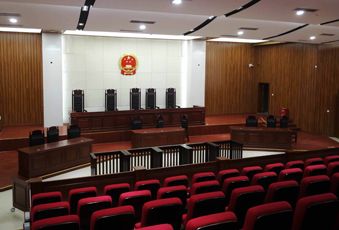Lists Of OSINT Tools Specifically Useful For Gulf Security Needs
Open-Source Intelligence (OSINT) tools are essential for gathering, analyzing, and utilizing publicly available information to address security concerns. In the context of Gulf security needs, where geopolitical tensions, cyber threats, and regional stability are critical issues, OSINT tools can provide valuable insights. This article explores a curated list of OSINT tools tailored to the unique security requirements of the Gulf region, including monitoring online activities, tracking regional developments, and identifying potential threats.
1. Social Media Monitoring Tools
The Gulf region has a high social media penetration rate, making platforms like Twitter (X), Instagram, and Telegram key sources of real-time information. These tools help security professionals monitor public sentiment, detect misinformation, and track emerging threats.
- TweetDeck: A free tool for real-time tracking of Twitter (X) activity. It allows users to monitor specific keywords, hashtags, or accounts relevant to Gulf security, such as #GCC or regional political figures.
- Hootsuite: A social media management platform that supports monitoring multiple platforms. It’s useful for tracking discussions about Gulf security policies or regional conflicts.
- Keyhole: Provides advanced analytics for hashtags and keywords, helping identify trends or influencers in the Gulf region who may impact security narratives.
2. Geolocation and Mapping Tools
Geopolitical dynamics in the Gulf often involve maritime security, border disputes, and infrastructure protection. Geolocation tools assist in visualizing and analyzing spatial data.
- Google Earth Pro: Offers detailed satellite imagery and historical data, useful for monitoring Gulf coastlines, oil facilities, or military installations.
- Sentinel Hub: Provides access to satellite imagery for tracking environmental changes or suspicious activities in remote Gulf areas, such as smuggling routes.
- OSM (OpenStreetMap): A collaborative mapping tool that can be customized to track infrastructure or logistical networks critical to Gulf security.
3. Web and Dark Web Analysis Tools
Cybersecurity is a growing concern in the Gulf, with state-sponsored hacking and extremist recruitment often originating from the dark web or obscure online forums.
- Maltego: A powerful tool for link analysis and data visualization, ideal for mapping relationships between entities involved in Gulf cyber threats.
- SpiderFoot: An automated OSINT tool that collects data from the web and dark web, useful for identifying potential cyber risks targeting Gulf institutions.
- Torch: A dark web search engine that can uncover hidden marketplaces or forums discussing Gulf-related security issues.
4. News and Media Aggregation Tools
Staying updated on regional news is vital for Gulf security, given the fast-paced nature of political and economic developments.
- Google News Alerts: A simple tool to receive updates on Gulf-specific topics like oil security, terrorism, or diplomatic relations.
- Feedly: Aggregates RSS feeds from Gulf-based news outlets (e.g., Al Jazeera, Gulf News) for a comprehensive overview of regional events.
- Inoreader: A customizable RSS reader that allows security analysts to filter content by keywords like “Gulf Cooperation Council” or “Iran threats.”
5. Communication and Encryption Analysis Tools
Monitoring encrypted communications or identifying vulnerabilities in communication networks is crucial for countering espionage or terrorism in the Gulf.
- Wireshark: A network protocol analyzer that can help detect anomalies in Gulf-based communication networks.
- Have I Been Pwned: Checks if Gulf organizations’ email domains have been compromised in data breaches, enhancing cybersecurity awareness.
- Shodan: A search engine for internet-connected devices, useful for identifying unprotected infrastructure in the Gulf, such as oil rigs or smart city systems.
Conclusion
The Gulf region faces unique security challenges, from cyber threats to geopolitical rivalries and environmental risks. The OSINT tools listed above provide a robust starting point for security professionals to gather actionable intelligence. By leveraging social media monitoring, geolocation analysis, dark web insights, news aggregation, and communication tools, Gulf states can enhance their situational awareness and response capabilities. These tools, when used responsibly, can contribute to a safer and more stable region.
